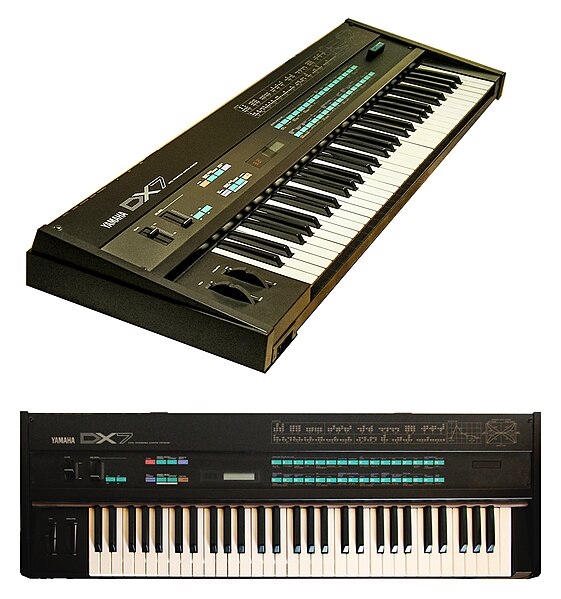Sequential is an American synthesizer company founded in 1974 as Sequential Circuits by Dave Smith. In 1978, Sequential released the Prophet-5, the first programmable polyphonic synthesizer, which was widely used in the music industry. In the 1980s, Sequential was important in the development of MIDI, a technical standard for synchronizing electronic instruments.
Sequential founder Dave Smith in 2015
The Prophet-5 (1978), the first Sequential synthesizer
Prophet 600 (1982), the first Sequential Circuits synthesizer with MIDI functionality
Various Sequential products [top to bottom] PRO-ONE (1981) Model 700 Programmer (1976) Prophet-5 (1978) Prophet T8 (1983)
A synthesizer is an electronic musical instrument that generates audio signals. Synthesizers typically create sounds by generating waveforms through methods including subtractive synthesis, additive synthesis and frequency modulation synthesis. These sounds may be altered by components such as filters, which cut or boost frequencies; envelopes, which control articulation, or how notes begin and end; and low-frequency oscillators, which modulate parameters such as pitch, volume, or filter characteristics affecting timbre. Synthesizers are typically played with keyboards or controlled by sequencers, software or other instruments and may be synchronized to other equipment via MIDI.
Early Minimoog by R.A. Moog Inc. (c. 1970)
Robert Moog with Moog synthesizers. Many of Moog's inventions, such as voltage-controlled oscillators, became standard in synthesizers.
The Minimoog, introduced in 1970, was the first synthesizer sold in music stores.
The Yamaha DX7, released in 1983, was the first commercially successful digital synthesizer and was widely used in 1980s pop music.




![Various Sequential products [top to bottom] PRO-ONE (1981) Model 700 Programmer (1976) Prophet-5 (1978) Prophet T8 (1983)](https://upload.wikimedia.org/wikipedia/commons/thumb/7/73/Sequential_Circuits_synths_rack.jpg/450px-Sequential_Circuits_synths_rack.jpg)



